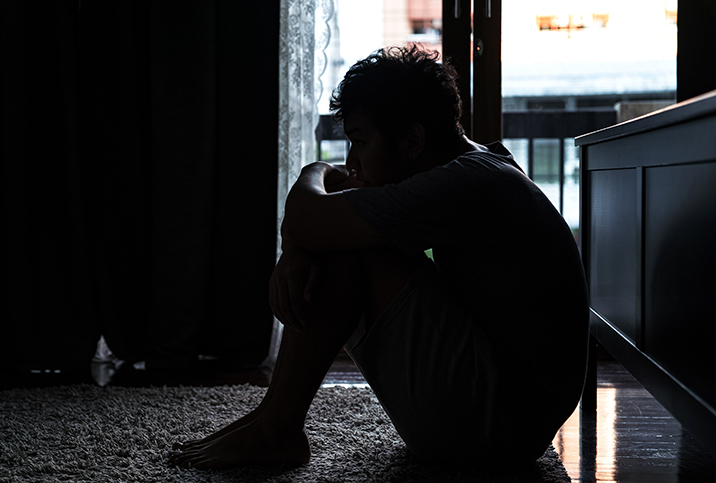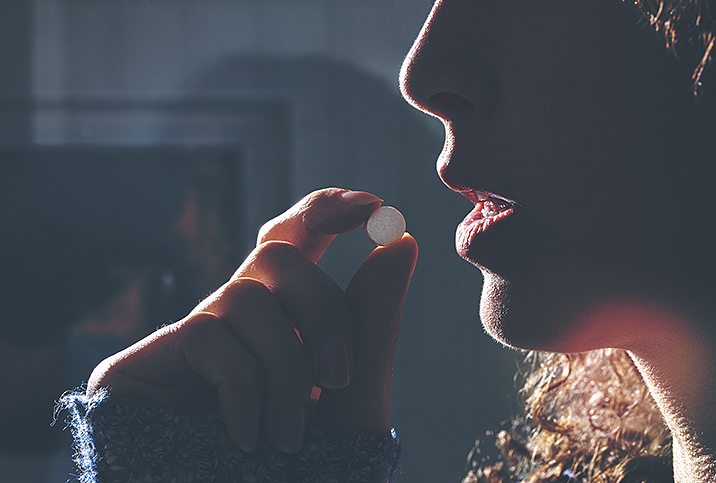Overcoming Depression Can Save Your Sex Life

Depression impacts more than 264 million people globally, across all genders and ages. While much is known about this condition, the stigma of seeking treatment often stops sufferers from getting the help they need. And that can affect all aspects of a person's life.
What is depression?
Depression is categorized as a condition of prolonged sadness, feelings of worthlessness or the inability to enjoy activities for prolonged periods of time, at least two weeks. Most often, depression sufferers do not know the cause or when the symptoms began. Individuals are usually unaware of the repercussions of this condition and will sometimes only seek treatment at the insistence of their family or friends.
Depression can arise from a wide number of factors, including neurochemical imbalances, genetics, psychosocial factors and other medical conditions. When these elements compound, the likelihood of depression increases. Women most often suffer depression after major life events that affect hormonal balances, such as pregnancy, the birth of a child, before or after menopause, and during or after extended periods of stress.
Sexual impacts of depression
Depression can sneak up on you and often deteriorates your life from the inside out. First, it takes away your ability to enjoy your favorite activities. Then, it attacks friendships. If depression is left untreated, your partners will suffer, as well. It's not just an emotional impact, either; depression has far-reaching and sometimes severe effects on sexual health.
These changes come about because our desire to have sex is caused by a chemical response in our brain. The chemical imbalance caused by depression prevents our brain from being able to properly "turn on" our sexual impulses. As a result, individuals suffering from depression can experience a decrease or complete cessation of arousal, the inability to climax and a lack of enjoyment during sex.
For women, these symptoms can also cause vaginal dryness because of the inability to become and stay aroused. This often causes secondary problems such as pain during sex, which can further compound the lack of sex drive. All of these issues will often increase symptoms of depression and create a vicious cycle that can leave sufferers feeling hopeless.
Overcoming your depression
If all of this sounds familiar, you're not alone. The good news is that because depression is common, many treatment options are available.
Many people misunderstand depression as an emotion that can be turned off with positive thinking or changes in lifestyle. The reality is depression is not something that will go away on its own, and if you let others convince you it will, you may prolong a decision to seek effective treatment. Putting off treatment also increases the risk of experiencing suicidal thoughts and behavior.
The first step toward overcoming your depression is to speak to a doctor. They will ask you a series of questions about your life, recent events, your overall mood and your lifestyle. They may then order blood tests to rule out secondary health conditions that can mimic depression.
Your doctor will most likely prescribe an antidepressant and recommend a licensed counselor to help you adapt to living with depression. Once you begin taking medication, it's important to continue taking it and follow the doctor's instructions. The worst choice you can make is to abruptly stop taking your medication, which can create new chemical imbalances that often lead to increased depression and thoughts of suicide. If you experience side effects, be sure to tell your doctor, who can switch you to a different medication.
Talking to your partner
Once you have been diagnosed with depression and have begun a treatment plan with a doctor, you need to talk to your partner about your diagnosis. It's common to feel embarrassed or self-conscious, but this conversation is essential for your relationship.
While it's normal for your partner to have questions about your condition, it's never OK for them to shame you. Depression is a medical condition like any other, and seeking treatment for it is just as critical as treating any other health issue.
As you talk with your partner, discuss how your depression is making you feel, how it's affecting your life and how you hope treatment can improve your relationship. Your counselor can help you practice this conversation if you're anxious about your partner's reaction.
If your partner struggles to understand or accept your condition, the two of you may benefit from a combined session with your counselor. This is often helpful because it creates a safe space where you and your partner can discuss your depression.
For many people, depression eventually subsides. With the help of medical professionals, you may eventually reach the point of remission and require no further treatments. Most often, however, depression is a lifelong condition. Remember that with treatment you can return to a normal lifestyle, complete with a satisfying and passionate sex life for many years to come. The first step is to ask for help.















